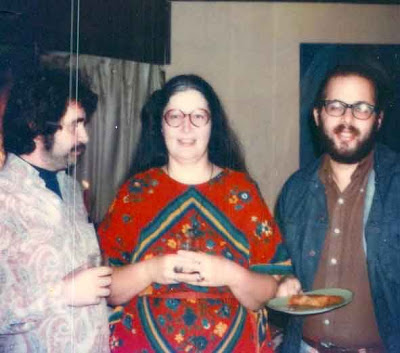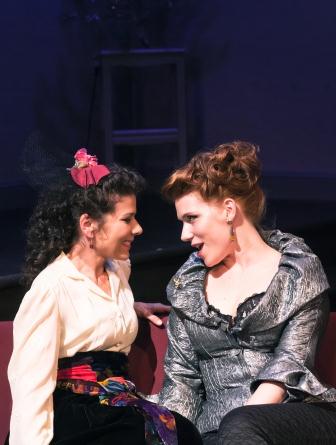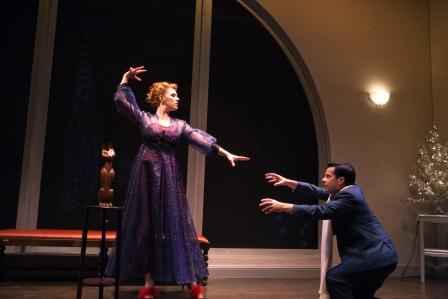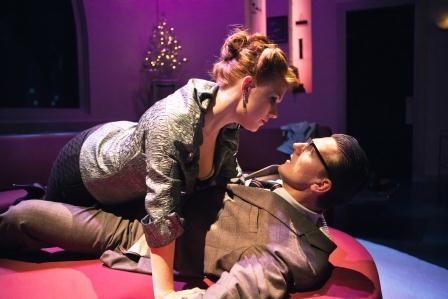Sometimes, an odd piece of news pops up in the most amazing place. Recently, while reading an article in Forbes magazine entitled Bolivia Set to Banish Coca-Cola to Mark Mayan End of Capitalism, I came across these truly delicious remarks:
"David Choquehuanca, the minister in question, explained that Coca-Cola will be expelled from Bolivia on the same day that the Mayan calendar enters a new cycle: December 21. According to Choquehuanca, the date marks the end of capitalism and the start of a culture of life in community-based societies. In order to celebrate that, Bolivia's government is already planning a series of events that will take place at the Southern Hemisphere's Summer Solstice on La Isla del Sol, one of the largest islands in Lake Titicaca. 'The 21st of December 2012 is the end of selfishness, of division. The 21st of December has to be the end of Coca-Cola and the beginning of mocochinche (a local peach-flavored soft drink),' Choquehuanca told reporters at a political rally for Bolivia's president, Evo Morales. 'The planets will line up after 26,000 years. It is the end of capitalism and the beginning of communitarianism,' he added."
Just when you think you've heard it all, the simplest truths rise up to merrily smack you in the face. With the recent election delivering victories to same-sex marriage proponents in Washington, Maryland, Maine, and Minnesota, the Supreme Court has agreed to consider whether the Defense of Marriage Act and California's Proposition 8 are constitutionally valid. Victories for the legalization of marijuana (even President Jimmy Carter supports this) have forced the mainstream media to take this issue seriously.
While some Americans assume that their religious freedom gives them the right to trample the rights of others, all too often the oppressor doesn't realize what true freedom can mean to someone. In this clip from the 1996 revival of A Funny Thing Happened on the Way to the Forum, Nathan Lane describes what it would be like to be "Free."
Think of legendary quotes like "To be or not to be" or "Free to be you and me" and then just imagine a world in which one never had to hide one's identity. Or listen to some bigot say "I'm surprised you would even consider having such people as friends."
It's amazing what kind of emotional breakthroughs can occur when a person no longer fears the disapproval of complete strangers. In a hilarious scene from Act II of A Funny Thing Happened on the Way to the Forum, Pseudolus has to convince Hysterium to dress up as the corpse of the young virgin that had been sold to the proud warrior, Miles Gloriosus. After Hysterium protests ("You didn't tell me I'd have to be a girl"), Pseudolus calms his nerves by reminding his fellow slave that "You know you're not a virgin and I know you're not a virgin. So what do we care what HE thinks?"
* * * * * * * * * *
Sometime around 1974 I answered an ad for a speed typist that introduced me to the field of medical transcription. The woman who hired and trained me had been a medical editor in New York who also liked to sing. Because our cultural backgrounds overlapped in some areas, we soon became friends.

Partying with Rosie in the mid-1970s (I'm on the right)
As months passed, I learned that Rosie also performed Tarot readings at local psychic fairs and was a practicing Wiccan. Occasionally, she would introduce me to a friend from her coven if we showed up at the same party. As a result, watching the San Francisco Playhouse's new production of Bell, Book, and Candle brought back many memories.
In 1945, Rex Harrison starred as Charles Condomine in the screen adaptation of Noel Coward's hit comedy, Blithe Spirit. Harrison also played the male lead in John Van Druten's 1950 comedy about a lonely, modern-day witch who hungers for the kind of love she can't manipulate into becoming a reality.
In 1953, early television audiences embraced Topper, a sitcom about a stuffy old banker who purchased a home at an estate sale only to discover that the house was inhabited by the ghosts of its previous owners (as well as the ghost of their pet St. Bernard, who had a fondness for martinis). By the time Bewitched made its network debut in 1964, audiences had developed a fondness for sight gags attributed to a character's extra-sensory, ghostly, or supernatural powers.
Gillian Holroyd has no problem conjuring up lightning storms, or using her cat, Pyewacket, as a means of achieving her mischievous ends. Upon learning that Shep Henderson (the handsome publisher who is one of her tenants) is planning to marry her college rival, Merle Kittredge, she decides to make him fall in love with her instead to placate her loneliness while getting back at Merle. As Bill English explains:
"The author of I Am A Camera (which became Cabaret), Van Druten was a gay man who, no doubt, felt a resonant kinship not only to the closeted life of witches, but with the persecutions by the House Un-American Activities Committee that were going on when the play was written in 1950. He was also ahead of his time in his understanding of power in relationships, of how we wrongly give up our power when we fall in love, and of how one lover can hold onto power over the other by withholding their own heart. These are themes more commonly explored in the literature from the 1960s and 1970s."

Zehra Berkman and Lauren English in a scene from
Bell, Book and Candle (Photo by: Jessica Palopoli)
While Gillian's aunt (Zehra Berkman) and brother Nicky (Scott Cox) like to use their powers to eavesdrop on telephone calls, play pranks on unsuspecting people, or attract clueless sex partners, witches are supposed to be more discreet in the use of their sorcery. The situation becomes complicated when Gillian, in her attempt to win Shep's favor, has the author of the best-selling Magic in Mexico suddenly appear and introduce himself to Henderson.
As luck would have it, Sidney Redlitch (Louis Parnell) has been researching a book on witches in New York. Spotting an easy opportunity for mischief, Nicky volunteers to help Redlitch with his research. Complications quickly ensue.

Gillian (Lauren English) reminds her brother (Scott Cox)
whose powers are stronger in Bell, Book and Candle
(Photo by: Jessica Palopoli)
The problem, at least in Van Druten's play, is that witches are not able to shed tears or feel the same kind of emotions that regular humans experience. As Gillian falls more deeply in love with Shep, she starts to lose her magical powers. Telling Shep that she is "one of them" leads to a bitter argument and breakup. By the final curtain, Gillian has lost her powers of sorcery but reclaimed her man (to no one's surprise, it seems like Gillian is a top).

Lauren English and William Connell in a scene from
Bell, Book and Candle (Photo by: Jessica Palopoli)
As set designer and stage director, Bill English has mounted Bell, Book and Candle with a sleekness and gentle tenderness that makes the play seem simultaneously modern yet quaint. It might well be that, six decades after its premiere (and in the wake of Harry Potter) the lovesick trials of a beautifully modern witch may seem rather tame. But Lauren English has a knack for finding a streak of emotional vulnerability in tough dames. In addition to chanting incantations, she wears Abra Berman's costumes beautifully.
While Scott Cox provides a playful foil as Nicky and William Connell does a nice job as Shepherd Henderson, the evening really belongs to Ms. English as the sorceress who, after discovering that she has a heart, gains her freedom to love. Gillian's blazing red hair and Bill English's magnificent, semicircular red couch dominate the proceedings for much of the evening. Performances of Bell, Book and Candle continue through January 19 at the San Francisco Playhouse.
To read more of George Heymont go to My Cultural Landscape
